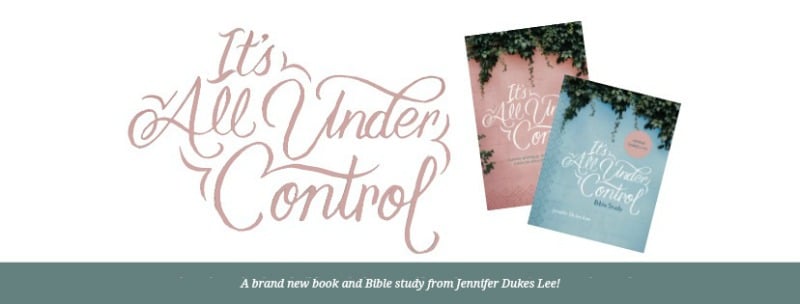Featured #TellHisStory Writer: Kimberlee Conway Ireton
During 2013, dozens of talented writers are joining me to cheer you on in your storytelling. These guest-writers will share a few helpful words with you right here every Tuesday night, to encourage you as you #TellHisStory. (Come back after midnight to link up your God Story by clicking here.)
And now, I’m delighted to introduce you to author Kimberlee Conway Ireton.
Copycat
Susan Patron, Newbery Award-winning author of The Higher Power of Lucky, once said the best piece of writing advice she’d ever received was to choose a book she loved and write it. “The book I wished I’d written,” she said, “was Sarah, Plain and Tall, so I got out my copy and started typing. I copied the whole thing. I wrote Sarah, Plain and Tall!”
Since hearing Ms. Patron tell this story, I have typed or hand-copied countless poems, prose passages, chapters from novels, and short stories that I admire. I’ve found this a powerful way to become a better writer. Every time I copy out a piece of great writing, its words, flowing from eye to brain to hand, become my own. As I tease out the reason behind the author’s choice of this word, that sentence structure, this punctuation, I expand my personal store of writing and story-telling techniques, giving me more words, more options from which to draw in my own writing.
So let me invite you to choose a piece of writing you love—you know, the one you return to again and again—and start typing.
Your turn: What piece of writing do you return to again and again?
Kimberlee Conway Ireton is a mother of four and the author of The Circle of Seasons: Meeting God in the Church Year. You can follow her on Twitter (@kconwayireton) or friend her on Facebook.




I LOVE this! I did something similar lately. After re-reading an old classic favorite (Daphne DuMaurier’s “Rebecca”), I took one of my favorite passages of descriptive writing and wrote a spinoff of my own. Just to see what I could do with it, soak a little while in her beautiful wording, and as you say… immerse myself to see what might have led to her word choices etc. I agree… in this sense, copycat is really a way to find your own timing in words etc. Thanks for the post!
Ooh, I haven’t read Rebecca in ages. I bet there’re some great passages to copy in there. DuMaurier is a master, isn’t she? If I wanted to write a piece with a hauntingly gothic tone, she’s definitely one I’d go to to get a sense of how it’s done well.
I’m so glad you liked the post, Pam–and I appreciate your seconding my writing tip here 🙂
Yes, knowing the story so well, this time I was really noticing more of her actual beauty in writing. There’s something about the British writers. Mmm… It was the passages where she describes the beauty of Manderley in the morning, putting you right there… those really made me savor and I had to stop and re-read them over and over. I hadn’t read it since being a teen, but a whole new appreciation from this side…for how she developed the voice of the nameless main character, all her “walter mitty” ways that I didn’t really remember (the character continually writing scenarios in her head that were all wrong, due to her insecurities) and kept her nameless throughout… Beautiful writing. 🙂
Kimberlee–my book is Green Dolphin Country by Elizabeth Goudge. I took a journal out after I read it and hand copied the passages that spoke to me the most…I’ve gone back to those passages many times.
this is an inspired ‘trick’–and you are an inspiration.
Thanks, Jody. Green Dolphin Country is on my list of books to read. I managed to track down a copy of Pilgrim’s Inn earlier this year and just loved it. Elizabeth Goudge is a wonder.
(And personally, I think hand-copying is more powerful than type-copying, though I have absolutely no scientific evidence to back that up. 🙂 )
I have to admit I’ve never thought about doing a writing exercise like this, but I can definitely see how it would be beneficial! I’d have to say I would copy Louisa May Alcott. Hands down. 🙂
“Christmas won’t be Christmas without any presents.” That’s one of my favorite opening lines ever. Especially since Jo grumbles it. While lying on the rug. Talk about an economy of words! Only 13, and we already know who, what, where, and when. That is definitely worth copying. 🙂
This is a good reminder for me. I used to have a notebook lying beside me while I read to jot down new-to-me words and particular sentences I loved in books. Somewhere along the way, I forgot about it. But I’ve never thought about being intentional the way you are describing here. There is obviously a reason we are drawn to certain books over and over again. One of my favorite Christian books is Knowledge of the Holy by Tozer by I also go back to a book of short stories by Julie Orringer called “How to Breathe Under Water.” So you’ve inspired me, thank you.
Shelly, I have a vocab notebook, too 🙂 Collecting words is another important practice for writers. Words are our tools, and we want to have the right ones ready when we need them. I hope you get a chance to copy Tozer and Orringer. It’s amazing to me how much I learn when I actually write the words instead of just reading them. I’m not altogether sure why it’s so powerful, but it is. Have fun! 🙂
Kimberlee, this is so good! And I love “Sarah, Plain and Tall.” Such a slim, beautiful book. My desire since childhood has been to write something Newbery-worthy, but right now, those kinds of words aren’t there. I’m glad I can make a living doing what I love, but I hope someday. Just need to decide what to copy.
I do this in small doses as I am often copying down great quotes or passages that move me, but an entire book? Interesting idea. I believe that the more you read (and write) the stronger your writing becomes. Thanks for this, Kimberly!